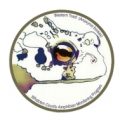News:
WCAMP has been busy working to learn more about Whatcom County Amphibians. Check out this article in the Bellingham Herald about one of our projects:

Whatcom County Amphibian Monitoring Program is an umbrella project of the Wildlife Conservation Trust . They are dedicated to preserving indigenous wildlife and habitats of the Northwest Bioregion. The Trust supports conservation-oriented wildlife research, education, and citizen involvement. Wildlife Conservation Trust is a 501 3c Non profit
Contact Information:
Phone: (360) 319-6988

Program Manager:
Vikki Jackson
vikki@whatfrogs.org
Vikki Jackson worked as a wetland ecologist for over twenty five years. She received a Masters of Science in Biology from Western Washington University with thesis work on peatland ecology. Her work with wetlands led to an interest (some would say obsession) with amphibians. Vikki has been involved in amphibian projects in Western Washington including the lead for a citizen science project for amphibian documentation within the Chuckanut Mountains and as a project coordinator for another citizen science based amphibian survey on BP lands in Ferndale, WA. Most recently she has served as the program manager for the Whatcom County Amphibian Monitoring Program (WCAMP) since 2013. Her work with WCAMP has included research and documentation of habitat use and census work on Oregon Spotted Frog in Whatcom County since 2011.

Lead Scientist:
Stephen Nyman, Lead Scientist
Stephen@whatfrogs.org
Stephen Nyman has studied and observed amphibians for more than 35 years, beginning on the East Coast, mostly in New Jersey, Rhode Island, and New York. He has a Masters degree in Ecology from Rutgers University and a PhD in Biological Sciences from the University of Rhode Island. His research interests have included the distribution and larval ecology of co-occurring, pond-breeding salamanders (Ambystoma species); the role that larval amphibians play—as consumers of algae and invertebrates—in structuring communities within temporary ponds; cannibalism in larval salamanders; ecology and behavior in a population of Cascade torrent salamander (Rhyacotriton cascadae); and since 2013 has been formulating research questions regarding Oregon Spotted Frog (Rana pretiosa).
Stephen has lived in Bellingham since 1989, from which he has had the great pleasure to do field work in eastern and western Washington, Oregon, California, and Colorado, and become familiar with a wide variety of species in diverse environments. He conducts specialized studies of amphibians, including surveys and habitat assessments for federal and state-listed species. He is also an avid amateur photographer, and is keenly interested in the conservation of amphibians and preservation of natural places.

Amphibian Scout
Monique Brewer
Monique@whatfrogs.org
Webmaster
Lyn Jackson
